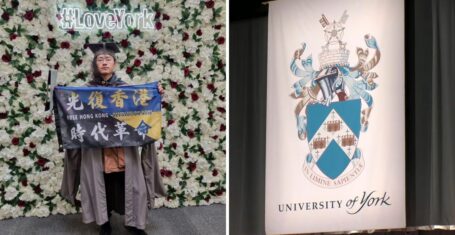
Student challenges ‘institutional sexism’ of 5% tax on tampons
Laura Coryton and her 45,000 supporters are campaigning against the classification of tampons as ‘luxury, non-essential items’
We all have those weeks where we have to cut back on those luxury items; that block of cheese or that extra drink on a night out.
But during the time of the month women are plagued by cramps and pain they are also stung by a 5% tax on tampons since the government deemed them non-essential items.
And women are paying extra whilst men’s products, such as shaving foam and razors, are labelled as essential and tax-free.
Laura Coryton, a student at Goldsmiths set out to tackle this outdated tax with a simple petition which soon transformed into an internet sensation.
“Luxury items.”
The petition on Change.org urges George Osborne directly: “Stop taxing periods. Period.”
“Like all young people, students are responsible for ensuring that society develops in a way that is relevant to the 21st century. We will be affected by policy for the entirety of our adult lives if we don’t change it now.”
Procrastinating from exam revision, Coryton was outraged to find that tampons were classed as non-essential items.
She set out to reduce the “outdated, damaging” tax from five to zero percent. She believes it is a sign of outdated institutionalised sexism still prevalent in our modern society: “This tax is sexist, illogical and impractical.”
“It is simply extremely unhelpful and echoes misogyny and sexism that has resonated in the UK since the 70’s, holding no relevant place in modern society.”
Men’s razors are considered essential, and tax-free
The tax itself was implemented in 1973 by a male-dominated parliament as tampons were shackled to a 17.5% luxury item tax. But after much campaigning it was cut to 5%.
This is minimal financially, costing women around £3 out of a £60 annual spend. But Coryton and her 45,000 campaign supporters have a bigger issue with what the tax symbolises: . This is not a monetary fight. It is a fight against inherent, institutionalised and everyday sexism that has held women back since 1973, when the tax was implemented.
“The resonance of this tax today echoes a sexist message that paints women as easily silenced and condonable non-essentialities that hold no significant place outside of their homes.
“Like sanitary care, the functioning of a woman’s life should never be considered a luxury. In no way are either of these things non-essential, and our tax system should reflect this.”
Before now, most students were unaware of the tax on tampons but are outraged because of it. Vee Wells, an English student at York said: “How much money are we spending each year just on making sure we don’t bleed through our favourite knickers!”
And others thought it extremely unfair that tampons are taxed whilst men’s products such as razors and shaving foam are tax free.
19 year old Ananna Zaman said: “If tampons aren’t an “essential item” then surely things like men’s razors and shaving foam should also be taxed?
“Women don’t choose to bleed every month and therefore shouldn’t have to pay more for what is basically the biggest ever fucking inconvenience in the world.”
Other students think sanitary care is a basic need and so should be given out for free. York student, Ali Ryland, said: “I think mooncups should be given out for free – less environmentally damaging and far more cost effective.”
But Croyton disagrees: “Using moon cups instead of tampons does nothing to challenge the institutional sexism that this petition was created in protest against, and sanitary tax will remain unchallenged, as it has done for the past 41 years.
“Moon cups are a perfectly reasonable alternative, but we shouldn’t have to seek for alternatives to escape institutionalised sexism once, each and every month!”
But the solution lies with the European Parliament. All 28 member states of the EU would have to agree to exempt tampons from tax.
Now it is up to George Osborne to push what could unfairly be dismissed as a women’s issue through the European parliament









































